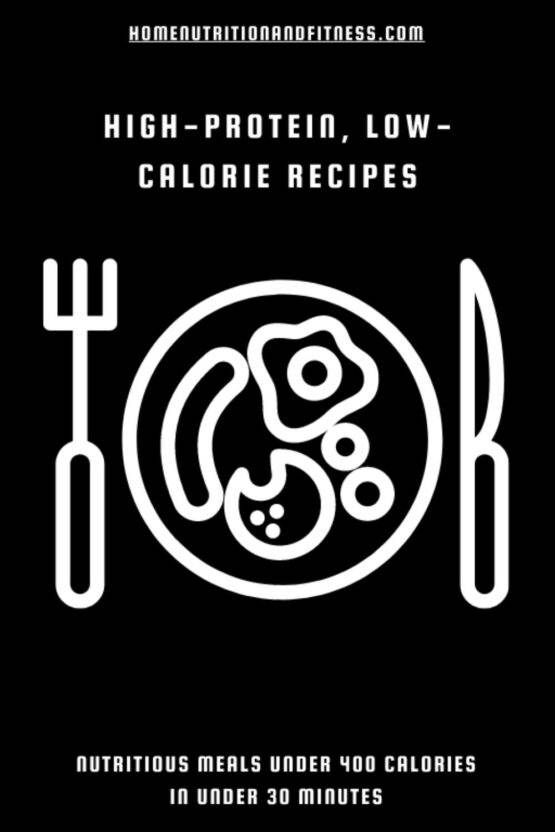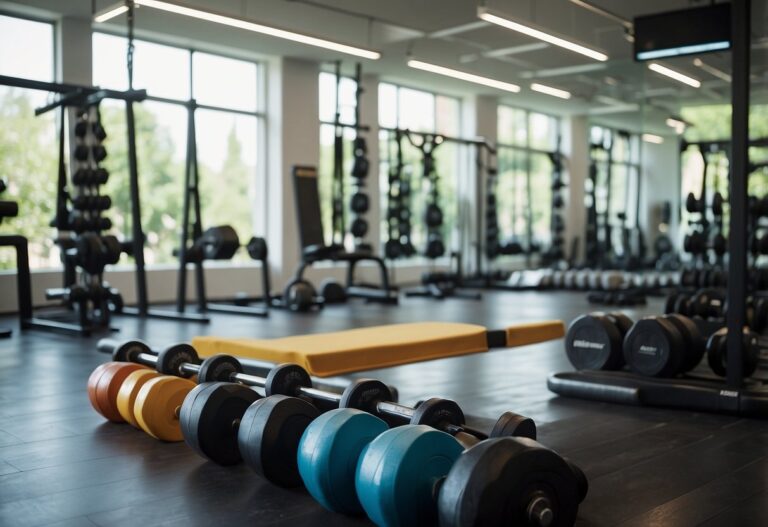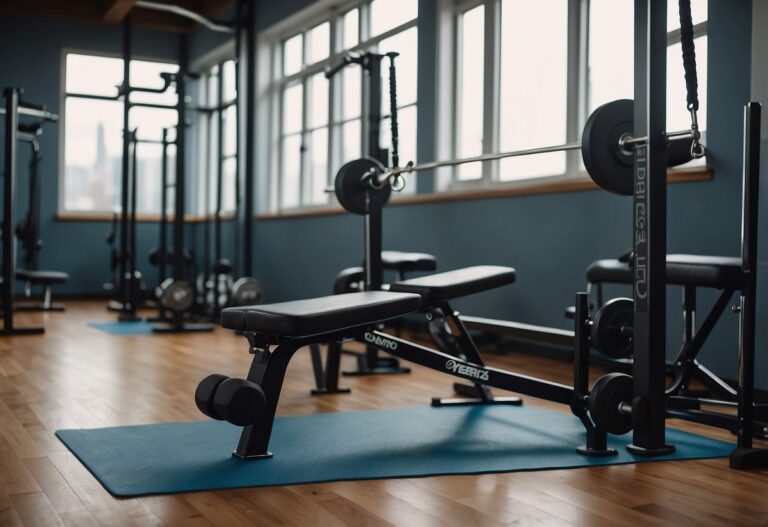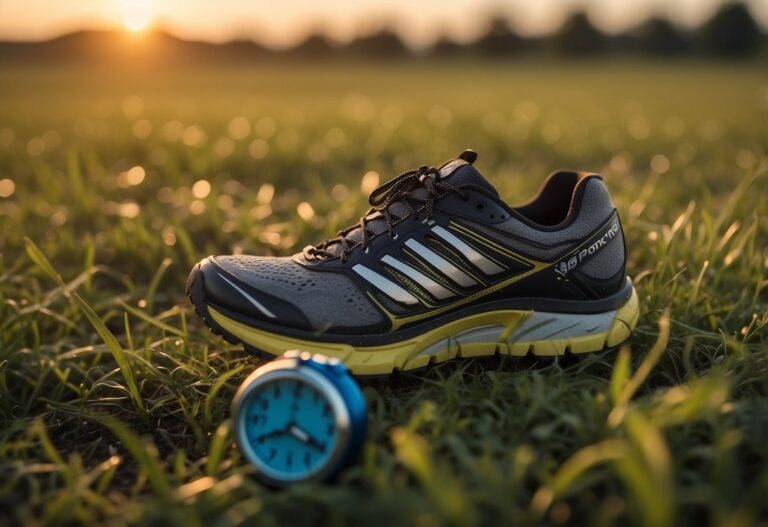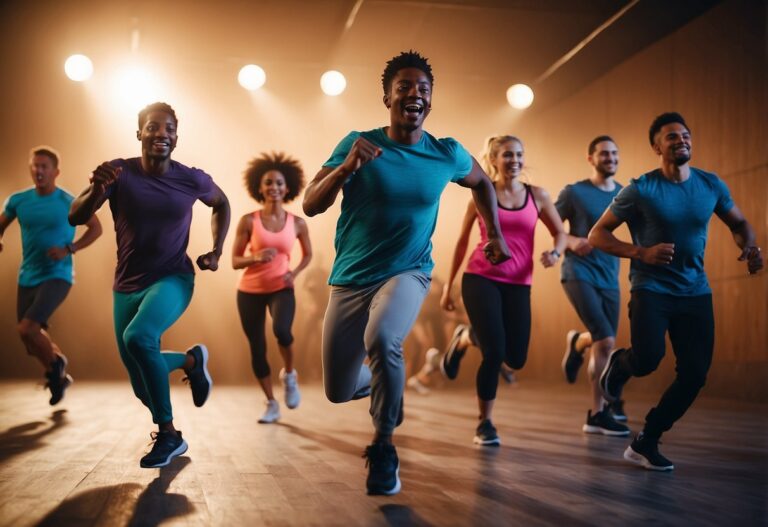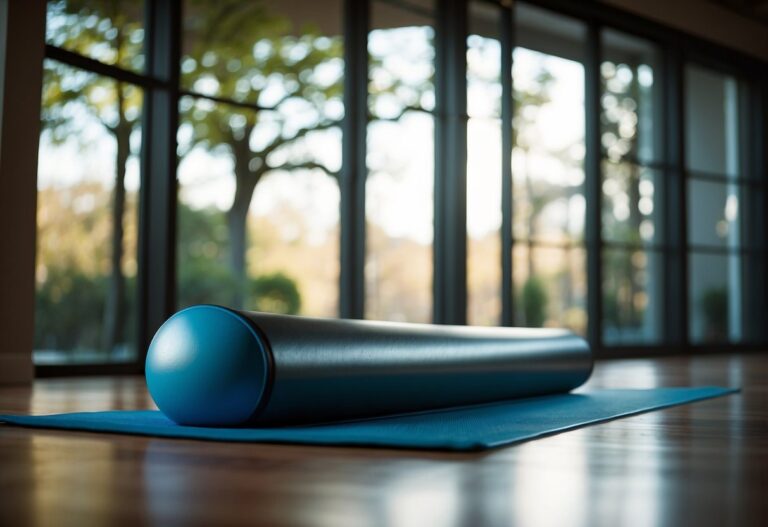Are you struggling to balance your gym workouts with a vegan diet? Whether you’re new to veganism or just looking to optimise your current meal plan, there are plenty of ways to ensure you’re getting the nutrients you need for muscle growth and recovery. Finding the right balance is crucial to achieving your fitness goals without compromising your dietary choices.
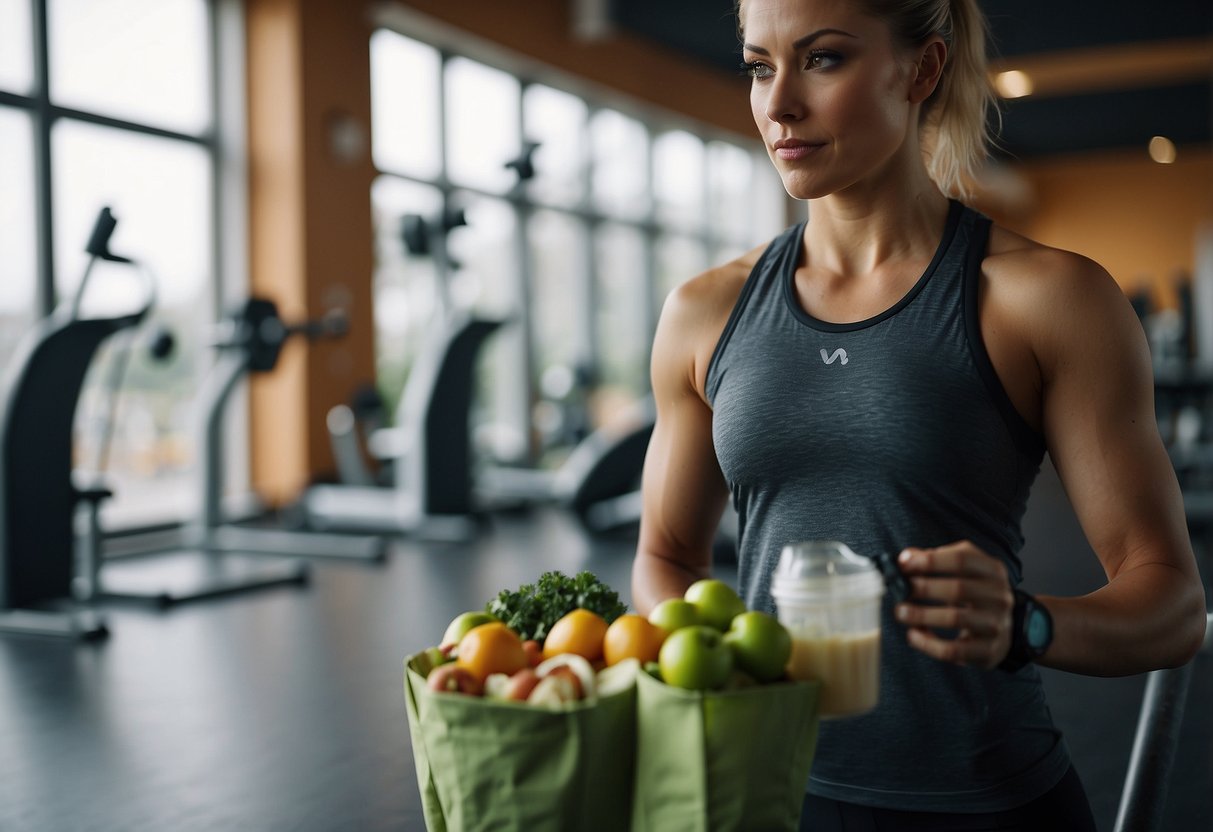
Integrating a vegan diet into your fitness routine doesn’t have to be difficult. By focusing on high-protein plant foods and smart meal planning, you can build strength and endurance effectively. With these practical tips and insights, you’ll be well on your way to a healthier and more effective gym experience.
Create a Meal Plan
Creating a meal plan can make sticking to a vegan diet much easier. First, set your goals. Are you looking to build muscle, lose weight, or maintain your current physique? Knowing this will help you decide how many calories and what balance of nutrients you need.
Start with protein. Aim for 1.6-2.2 grams of protein per kilogram of body weight. Good vegan sources include tofu, tempeh, and lentils. These can be the foundation of your meals.
Carbohydrates are important for energy. Focus on whole grains like brown rice, quinoa, and oats. These provide sustained energy and important nutrients.
Don’t forget fats. Include sources like avocados, nuts, and seeds. These are essential for hormone production and overall health.
Plan ahead by preparing your meals in advance. This can save time and ensure you always have a healthy option available. Try making a large batch of vegan chilli or curry, which can be portioned out for several meals throughout the week.
Stay hydrated. Consuming enough water is important, especially with a high-fibre diet. Aim for at least 1 ml of fluid per calorie consumed each day. For example, drink around 2,500 ml of water if you’re eating 2,500 calories.
For more specific meal ideas and dietary guidelines, check out this 7-day vegan bodybuilding diet plan and this comprehensive meal plan guide. These resources provide structured meal plans and snack ideas to help you meet your goals.
Focus on High-Protein Foods

When you’re following a vegan diet for gym workouts, high-protein foods are key. You need proteins for muscle repair and growth.
Legumes like lentils, chickpeas, and black beans are excellent sources. They are versatile and can be included in soups, salads, and stews.
Don’t forget tofu and tempeh. These soy-based foods are packed with protein and can be used in a variety of dishes, from stir-fries to sandwiches.
Nuts and seeds, such as almonds, chia seeds, and hemp seeds, also offer good protein content. They make great snacks or toppings for meals.
Incorporate whole grains like quinoa and bulgur, which provide a complete protein profile when combined with other plant-based foods.
Incorporate Plant-Based Proteins
Adding plant-based proteins to your diet can help you build muscle and recover after workouts. Focus on foods like lentils, chickpeas, and tofu. These are great sources of protein.
Try having a vegan protein shake with unsweetened almond milk. It’s a quick and easy way to get the protein you need after a gym session.
Tempeh and edamame are also excellent choices. They not only come packed with protein but also provide essential vitamins and minerals. Keep things interesting by trying different recipes and combinations.
Stay Hydrated with Infused Water

Staying hydrated is key, especially when working out. Drinking plain water can sometimes feel boring. Why not try infused water? Adding fruits, herbs, and veggies to your water makes it more enjoyable.
Think about adding slices of lemon or cucumber to your water. Not only do they taste great, but they also help keep you hydrated.
You can also experiment with mint leaves or even berries. These add a burst of flavour without adding any extra calories.
For a fun twist, consider using a water bottle with a built-in infusion chamber. This makes it easy to carry your tasty water wherever you go.
Try different combinations and see what you like best! Adding natural flavours to your water can make a big difference in helping you stay hydrated while enjoying your workout.
Plan for Balanced Macros

Planning your macros can seem tricky, but it’s key to a successful vegan bodybuilding diet. Start with protein since it helps build muscle. Aim for 1.6-2.2 grams of protein per kg of body weight. Good vegan sources include lentils, chickpeas, and tofu.
Next, look at fats. Keep them at 15-30% of your daily calories. Think avocados, nuts, and seeds. These fats are essential for energy and hormone production.
The rest of your calories should come from carbohydrates to fuel your workouts. Whole grains and starchy vegetables are great. For example, sweet potatoes and quinoa can be satisfying and nutrient-rich.
Balancing macros helps you reach your fitness goals while staying healthy. Consider using an app to track your intake. Or, write down what you eat to stay on top.
Finally, adjust portions based on your progress. If you feel sluggish or not gaining muscle, tweak your servings. Always listen to your body.
Opt for Whole Foods
Eating whole foods is crucial when following a vegan diet focused on gym workouts. Whole foods like fruits, vegetables, grains, nuts, and seeds provide the nutrients your body needs without the added preservatives.
Imagine starting your day with a hearty bowl of oatmeal topped with berries and nuts. It not only provides energy but also keeps you full longer.
When you choose whole foods, you get the full range of nutrients. Unlike processed foods, whole foods haven’t been stripped of their vitamins and minerals.
Next time you crave a snack, grab an apple or a handful of almonds. Your body will thank you for the natural fuel.
Monitor Your Progress
Tracking your progress is essential in a gym workout and vegan diet journey. Start by noting your body measurements. This helps you see changes over time.
Use fitness apps to log your workouts. These apps can show patterns in your strength and endurance.
Keep a food diary. Track what you eat and adjust based on your goals. Adjusting portions can help you meet your nutritional needs and fitness targets.
Take photos regularly. Comparing pictures can motivate you as you’ll see visual progress over time.
Check your strength gains. Document how much weight you’re lifting and how many reps you complete. This provides insight into your muscle growth.
Consistency is key. Tracking helps ensure you stay on the right path toward your goals.
Include B12 Supplements
Vitamin B12 is crucial for your health, especially if you follow a vegan diet. Since B12 is mainly found in animal products, vegans often need a supplement to meet their needs.
Have you ever felt unusually tired or weak? It might be a sign of B12 deficiency. Using a B12 supplement can prevent this.
Many B12 supplements come in various forms like sublingual tablets or liquid drops. For example, Future Kind’s Vegan Essential Multivitamin is a popular choice. Make sure you’re getting enough to support your energy levels and overall health.
Track Your Caloric Intake

To make the most of your gym workouts on a vegan diet, you need to track your caloric intake. This helps you understand how much energy you’re consuming versus how much you’re burning. Knowing your Total Daily Energy Expenditure (TDEE) is essential. Your TDEE is the number of calories you burn each day.
Tracking what you eat is crucial. Use an app to log your meals. This way, you can see if you’re hitting your calorie and nutrient goals. Apps can help you adjust your diet if needed.
Pay close attention to your protein intake. Vegan sources of protein, like black beans, have less protein compared to meat. Ensure you’re eating enough to support muscle recovery and growth.
Limit Processed Foods
Processed foods often contain high amounts of refined sugars, unhealthy fats, and preservatives. When you’re on a vegan diet aimed at building muscle, avoiding these foods can be beneficial.
Instead of reaching for vegan snacks or fast food, focus on whole, natural ingredients. Fresh fruits, vegetables, nuts, and whole grains offer more nutrients and better fuel for your workouts.
High-fibre foods can help keep you full and energised. Think about how you feel after eating a wholesome salad versus processed snacks. Making smarter food choices can significantly impact your health and fitness progress.
Understanding Gym Workouts on a Vegan Diet

When adopting a vegan diet and maintaining a gym routine, it is crucial to balance macronutrients and include essential supplements. These steps ensure your workouts are effective, your energy levels are high, and your recovery is optimal.
Balancing Macronutrients
Balancing macronutrients is key. As a vegan, you must ensure you get enough protein, carbohydrates, and fats. Protein is vital for muscle repair and growth. Plant-based sources such as beans, lentils, chickpeas, and nut butter provide the needed protein.
Carbohydrates are your main energy source. Whole grains like quinoa, rice, and oats are excellent choices. Healthy fats, found in avocados, nuts, and seeds, are essential for maintaining energy levels and supporting overall health.
A balanced plate might look like a serving of quinoa with black beans and a side of sautéed vegetables. Or consider a breakfast of oatmeal with peanut butter and banana slices. Remember, balancing your meals not only boosts performance but also helps with recovery and muscle growth.
Essential Supplements for Vegans
Vegans might miss out on critical nutrients found in animal products. Therefore, supplements can bridge this gap. Vitamin B12 is a must, as it supports nerve function and energy production. It’s typically found in animal products, so vegans should take it as a supplement or consume fortified foods.
Another key supplement is vitamin D, often deficient due to lack of sufficient sunlight exposure. Omega-3s are also crucial. You can get them from algae-based supplements, which are a vegan-friendly option.
For example, you might take a daily B12 supplement, a vitamin D capsule, and an omega-3 from algae. These steps ensure you get all the essential nutrients needed to support your gym workouts and overall health.
Optimising Your Gym Routine

Planning your gym routine effectively can significantly boost your performance. To improve your workouts, focus on nutrition and recovery to keep your body energised and ready for each session.
Pre-Workout Nutrition Tips
Eating the right foods before your workout can make a big difference. Aim for a mix of carbohydrates and protein. Good options include:
- Oatmeal with fruit: A great source of slow-releasing carbs.
- Banana with almond butter: Quick energy from the banana and healthy fats from the almond butter.
- Smoothie with spinach, berries, and protein powder: Easy to digest and packed with nutrients.
Hydrating is important. Drink plenty of water and consider an electrolyte drink if you’re working out intensely. Timing matters too. Try to eat 30 minutes to an hour before your workout. This gives your body time to digest and convert food into energy.
Post-Workout Recovery Strategies
After working out, your body needs to recover. This means replenishing glycogen stores and repairing muscle fibres. Focus on these key components:
- Protein: Essential for muscle repair. Options like legumes, tofu, tempeh are excellent for vegans.
- Carbohydrates: To refuel your energy. Foods like quinoa, sweet potatoes, and whole grains are ideal.
Consider a post-workout meal within 60 minutes of finishing your session. This is when your body is most receptive to absorbing nutrients.
Hydration is again crucial. Drink plenty of water and consider a recovery drink if you had a particularly intense session. Stretching and cooldown exercises help reduce muscle stiffness and improve recovery.

